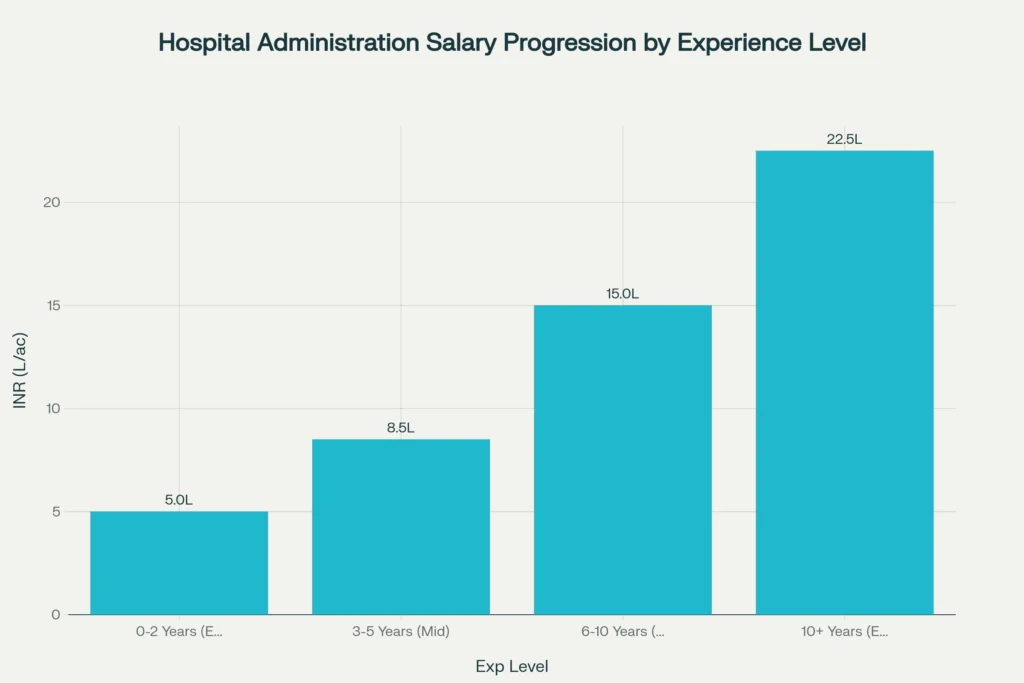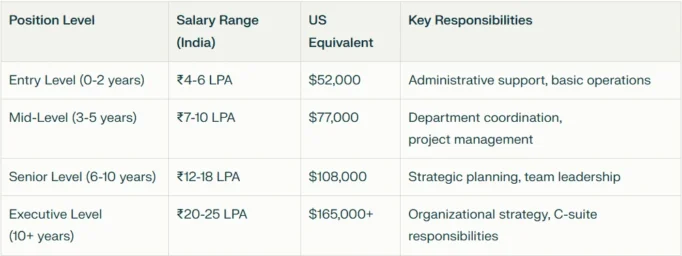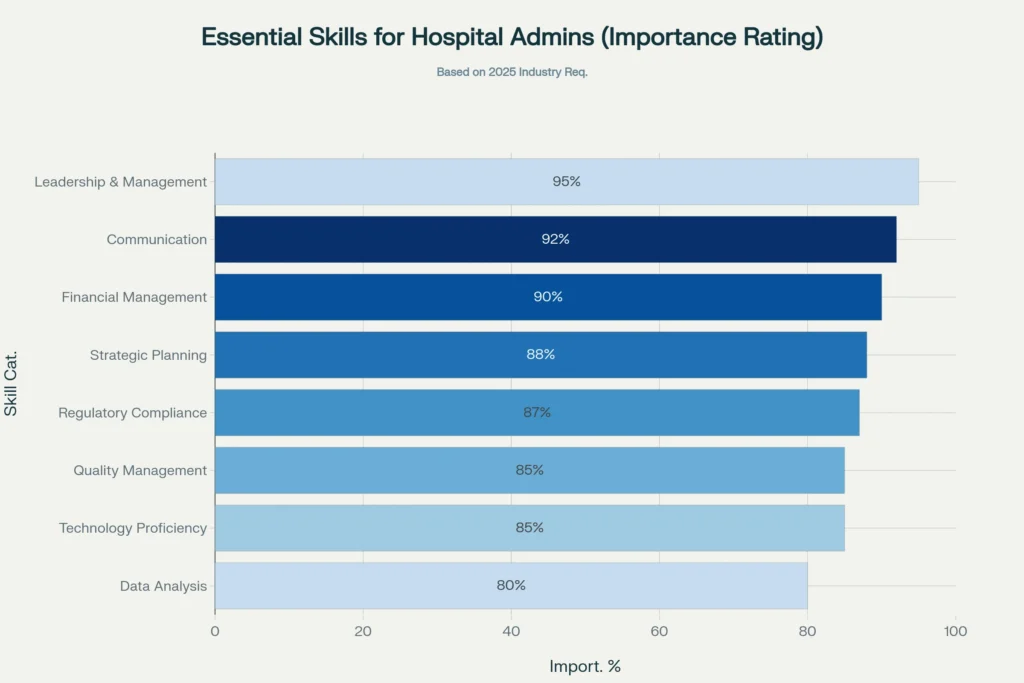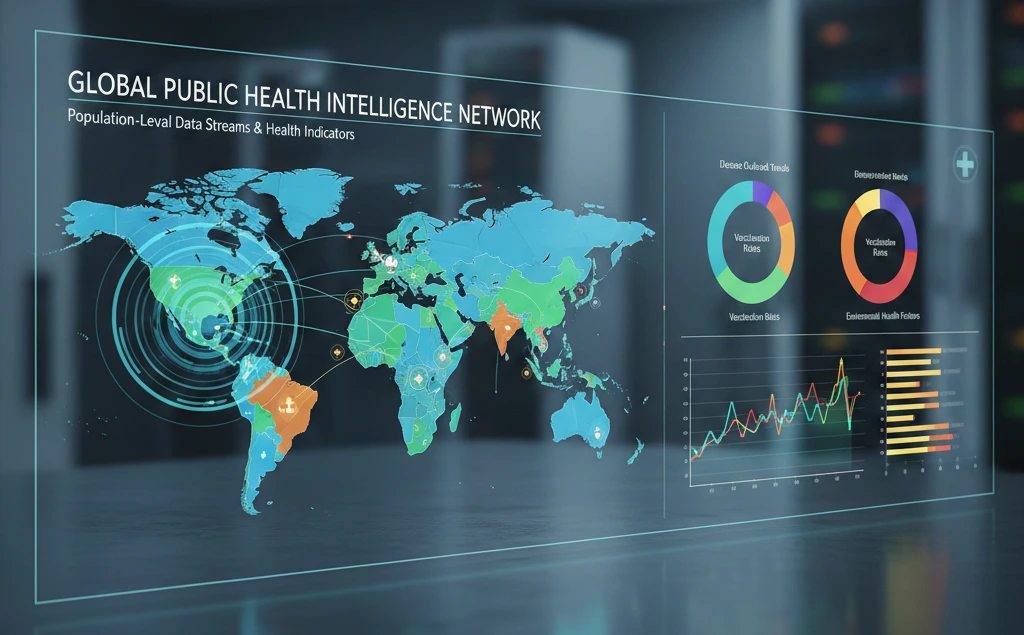New Delhi / Global – The hospital administration has emerged as one of the most dynamic and rapidly growing career plans in modern health care, offering graduated unprecedented opportunities to shape the future of medical services, creating highly rewarding professional trajectories. As health systems worldwide undergo digital transformation, the role of hospital administrators has evolved from traditional management positions to strategic leadership functions that directly affect patient results and organizational success.

Understanding The Hospital Administration
Hospital administration covers the comprehensive management and supervision of health facilities, focusing on commercial and operational aspects that allow medical professionals to offer quality care to the patient. This multifaceted field involves strategic planning, financial management, regulatory compliance, human resources and complex health systems coordination to ensure efficient, safe and effective services.
Central Responsibilities of Hospital Administrators
Hospital administrators serve as a vital bond between clinical personnel, executive leadership and patients, managing everything from daily operations to long-term strategic initiatives. Their responsibilities include supervising departmental coordination, ensuring compliance with health regulations, managing budgets and financial resources, implementing quality improvement programs, and promoting effective communication at all organizational levels.
Scope extends beyond traditional management to include policy development, community relationships, technology implementation and crisis management. Modern hospital administrators should navigate complex challenges, including health reform, technological integration, patient satisfaction initiatives and workforce management in an increasingly competitive medical care scenario.
The Career Transformation Landscape
Explosive Growth of Employment and Market Demand
Hospital administration represents one of the fastest growing career sectors, with the Bureau of Labor Statistics in the US projecting a remarkable 28-29% growth in employment from 2023 to 2033-significantly greater than the average for all occupations. This translates into approximately 54,700 annual vacancies in various health administration functions.
The expansion of the health sector, driven by population aging, increased chronic disease management and technological advancement, has created an unprecedented demand by qualified administrators who can sail complex health systems. Current use in medical and health service management is over 352,200 professionals, with projections indicating substantial growth in all health sectors.
Salary Progression and Financial Rewards

Financial prospects in hospital administration are exceptionally attractive, with significant gain potential that increases dramatically with experience and experience. Basic positions usually offer salaries ranging from 4-6 lakhs a year. While experienced executives can command ₹ 20-25 lakhs per year or more.
Salary Progression by Function of Hospital Administration

Digital Transformation : Remodeling Career Requirements
Integration of Technology and Modern Skills

The digital revolution in Healthcare has fundamentally transformed the skill requirements for hospital administrators. Modern professionals must have technological literacy in electronic health records (EHR), telemedicine platforms, data analysis and artificial intelligence applications.
Essential Skills for 2025 and Beyond
The most critical skills for hospital administrators include leadership and management resources (95% importance), communication skills (92% of importance) and experience in financial management (90% of importance). Technological proficiency became increasingly vital, with 85% of importance classification, reflecting the need for administrators to navigate digital health ecosystems effectively.
Strategic planning, regulatory compliance and quality management completes the essential skill set, each with classifications of importance from 85 to 88% in modern health environments. These skills allow administrators to manage complex medical care operations, ensuring patient safety, regulatory adherence and organizational efficiency.
Emerging Technologies and Career Evolution
Hospital administration careers are being revolutionized by artificial intelligence, machine learning, Internet of Things (IoT) devices and blockchain technologies. Administrators should now understand and implement AI -oriented diagnostic tools, predictive analysis for allocation of resources and automated systems for patient care coordination.
The integration of digital twins, telemedicine platforms, and smart medical devices requires managers to develop computing in health, data safety, and technology governance. These technological advances are creating new specialized duties in hospital administration, including health computer managers, digital transformation specialists and AI implementation coordinators.
Career Pathways and Specialization Opportunities
Various Professional Trajectories
The hospital administration offers several specialization paths, allowing graduates to align their careers with personal interests and market demands. Hospital administrators can focus on general facilities management, while clinical operations managers specialize in workflow optimization and patient care coordination.
High Demand Specializations Include
- Health Consultants : Optimization of Strategic Consulting Processes and Services (average salary of US $ 125,000)
- Clinical Operations Managers : Workflow and patient care management (average salary of US $ 122,000)
- Hospitals Administrators : General installation leadership (average salary of US $ 108,000)
- Health Information Managers : Data Management and Records (average salary of US $ 95,000)
- Quality Improvement Managers : Patient safety and standard compliance (average salary of US $ 89,000)
Educational Paths and Professional Development
Most hospital administration careers begin with a bachelor’s degree in medical care or related field administration, although many professionals improve their perspectives with the degrees of Master of Health Administration (MHA). The MHA diploma particularly enhances the gain potential and opens doors for executive level positions.
Professional development through continuous learning, industry certifications, and training specialized in emerging technologies has become essential for career advancement. Health administrators should remain up to date with regulatory changes, technological innovations and evolving patient care models throughout their careers.
Impact on The Transformation of Postgraduate Career
From Traditional to Strategic Leadership
The hospital administration has become traditional management positions in strategic leadership positions that directly influence health care and patient results. Modern graduates enter a field where they can immediately impact organizational efficiency, patient satisfaction and community health results.
The career offers remarkable versatility, with opportunities in hospitals, consulting companies, pharmaceutical companies, insurance organizations, government agencies and technology companies. This diversity allows graduates to explore various sectors in health care, building transferable skills that improve long-term career prospects.
Global Opportunities and Market Expansion
The rapid expansion of the international health market creates global career opportunities for qualified administrators. Many MHA graduates find positions in international health organizations, consulting firms and multinational medical device companies, expanding their professional horizons as well as domestic markets.
Career Flexibility and Balance Between Professional and Personal Life
Modern hospital administration functions are increasingly offering flexible work agreements, remote management features and various scheduling options. This flexibility attracts graduates in search of significant careers that accommodate personal lifestyle preferences, keeping professional growth trajectories.
Future Perspectives and Industry Trends
Evolution of The Workforce and Emerging Papers
The health workforce is becoming more specialized and technology-oriented, creating new administrative functions focused on digital transformation, AI implementation and data analysis. Population health managers, digital health specialists and health data analysts represent emerging positions that combine traditional administration with state-of-the-art technology applications.
Health organizations are increasingly adopting flexible personnel models, artificial intelligence tools, and consumer -centralized care approaches that require administrators with various adaptive skills and resources sets. These trends create opportunities for graduates to enter a dynamic field with continuous learning and growth potential.
Sustainable Career Growth
The combination of demographic trends, technological advancement and health system evolution ensures long-term career stability and growth opportunities in hospital administration. The aging of the global population, the increase in the prevalence of chronic diseases and the expansion of access to health create a demand for qualified administrators in all sectors of health.
Conclusion
Hospital administration has evolved into a transformative career that offers graduate exceptional opportunities for professional growth, financial success and significant impact on health services. With job growth rates over 28%, 350%salary progression potential and several specialization opportunities, this field represents one of the most attractive career options for ambitious graduates.
The digital transformation of medical care has raised hospital administrators from traditional managers to strategic leaders who shape the future of medical care through technology integration, process optimization and innovative service provision models. Graduates who enter this field can expect dynamic and rewarding careers that combine business insight into health experience, helping to improve patient results and organizational success.
As medical care continues its rapid evolution, hospital administration careers will remain at the forefront of industry transformation, offering graduates the opportunity to build significant, financially rewarding and professionally careers, which make a lasting difference in health services worldwide.


